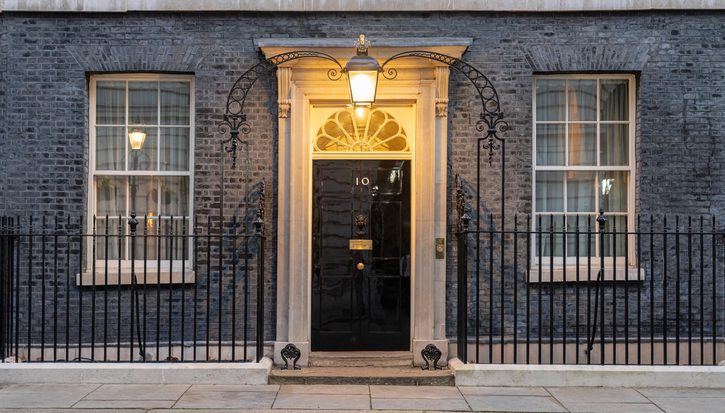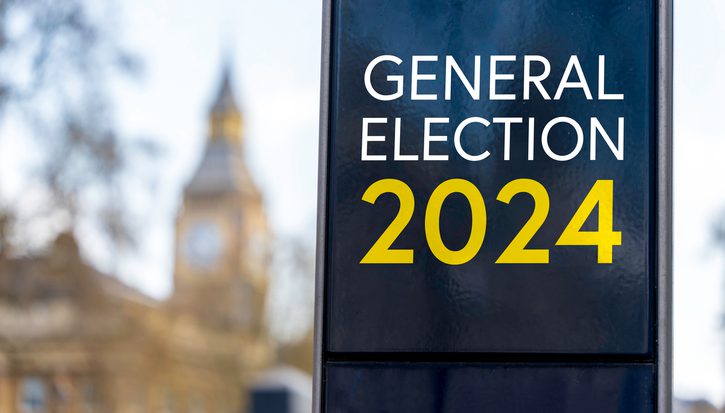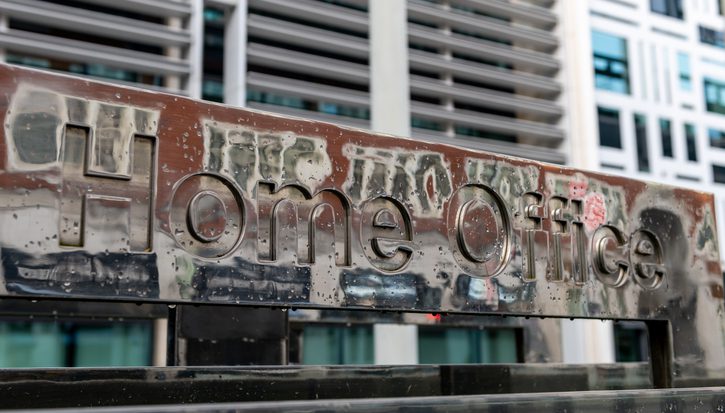Where next for progressive politics? Reframing the fight against inequality
Where next for progressive politics? Reframing the fight against inequalityArticle
The last two years have been bruising for progressive politics. The Labour party has suffered two election defeats and the Liberal Democrats are fighting for their political relevance. Many in the progressive movement fear a continued period in the wilderness. Yet the need for progressive ideas has never been greater than it is today; and progressive arguments more in the ascendancy.
{{ getQuote("id=148") }}
There is a growing consensus that the economy does not work for the majority of people in the country and that the proceeds of growth are unfairly distributed. Half of all UK households have seen no meaningful improvement in their incomes for more than a decade.[i] Before tax and government transfers, only 10 per cent of overall income growth between 1979 and 2012 went to the bottom half of households; those in the bottom third barely shared in the growth at all. Meanwhile, the richest 10 per cent took almost 40 per cent of this total.[ii] This divide is not just about class, it is also about where you live. The UK economy has long been dominated by London and the South East. Successive governments have talked the talk of rebalancing the economy, but few have managed to walk it. Consequently, the post-crash recovery has occurred entirely in London and the South East. In no other region of the country has GDP per head recovered to its pre-crash peak.[iii] This reality has increased the intensity of the spotlight on the gap between the economic fortunes of the South East and the rest of the country.
The myth that economic growth would always result in the majority of people being better off has been shattered. Instead, the idea that our economy does not work for all has gained traction across the political spectrum. It was no accident that the centrepiece of the first budget of the first Conservative government in 20 years was a hike in the minimum wage, rebranded as a living wage. Nor was it a coincidence that Theresa May’s first speech to the country as prime minister could have been given by a Labour leader. Nor that the Conservatives, like Labour, fought the 2017 general election on the promise of creating an ‘economy that works for everyone’. The centre ground of politics is being recast. The challenge of raising living standards for lower- and middle-income families across the country is now becoming the defining political issue.
For many, the referendum on the European Union was an outlet for the growing frustration and anger they felt about a system that does not work for them. One of the clear messages sent by many leave voters across the country was that they were tired of being ignored and left behind. Those that hoped Brexit would be the panacea to many of their problems may soon be disappointed. When taking back control from Europe fails to deliver the pace of change that people want, the wave of frustration and anger that erupted in the referendum will turn from Europe to the political class. This will create an urgency and imperative for political parties to respond.
{{ getQuote("id=149") }}
In responding, progressives must frame their response as a majoritarian issue rather than a narrow one that speaks only to the bottom 10 or 20 per cent of households. The left has traditionally viewed the fight against inequality through the lens of the poorest in our society. While necessary, this has increasingly neglected a sizeable majority who are being squeezed and left behind. To be relevant, the fight for inequality must be reframed in terms that speak to a broader cross-section of our society. And the answers to this problem must go beyond traditional distributional policy through tax and spend. Policies such as tax credits introduced by the last Labour government were effective at subsidising low wages and redistributing wealth to those less well off. But these interventions simply managed the symptoms of the problem rather than tackling the cause. Moreover, their scope will be constrained in the future if the deficit remains high and public appetite for taxation low amid stagnating living standards.
{{ getQuote("id=150") }}
In developing new solutions to the living standards question, progressives will need to address four issues that go to the root cause. First, we will need an answer to the productivity problem. The UK’s productivity has consistently lagged behind those of our competitors.[iv] Since the 2009 recession, productivity growth has slowed dramatically and progress at closing the gap has stalled. To improve living standards, we must first increase productivity across the economy. The focus on industrial strategy as a route for achieving this is the right one. However, to have any impact this must result in coordinated state action, backed by public investment, to achieve defined goals for the economy – such as growing the green economy or increasing manufacturing as a share of GDP. It must also combine a national programme with regional strategies to drive change on the ground in different parts of the country.
Second, we must address the income problem. Finding ways to ensure that middle- and lower-income households are the key beneficiaries of increased growth through rising wages must be at the heart of the progressives’ answer. A great deal of effort has been put into developing a response for those at the bottom end of the income distribution through the minimum wage and now the living wage. However, very little attention has been placed on a commensurate response for middle-income households. Some employers have sought to lead the way through schemes that share a proportion of their profits with their workers through bonuses or shares; but a more comprehensive and systematic approach is needed across the economy.
Third, we need an answer to the cost of living problem. Driving down costs for essential goods and services like housing, energy, water, telecommunications and transport will be critical here. Across these sectors, a handful of companies dominate the market. Low levels of competition in dysfunctional markets that consumers are highly reliant on have left many households exposed to uncompetitive and often unfair prices. This is in part the legacy of a failed privatisation project – but progressives must unpick this with solutions that go beyond renationalisation. This will include a combination of more effective regulation and more diversified provision through public, mutual and not for profit organisations acting as challengers to incumbents.
{{ getQuote("id=151") }}
Finally, we must address the opportunity problem. Progressives need to find solutions to level the playing field and create opportunities for people across income groups to progress. The link between the income of the family you were born into and your prospects in life has grown stronger not weaker with time.[v] Less able but better-off children are now 35 per cent more likely to become high earners than bright but poor children.[vi] The state has an important role to play in ensuring that everyone has an equal chance to get ahead through decent education, strong public services and access to opportunities. However, this needs to be a very different state than our current one. It must be rooted and located in communities and able to respond to the specific challenges and opportunities in different places. This means greater devolution of power and responsibility than has been achieved to date. It also means a smaller central state in Whitehall where the ability to effect change on the ground is limited and a bigger regional and local state with the capability and levers to deliver change. By putting power in the hands of the people who live in, work in and understand the communities they are trying to help, we may find new ways of helping places that have been left behind get ahead.
Together, the response to the living standards question may provide the building blocks for a new political project that could drive the renewal of progressive politics. The challenge for progressives across the spectrum is whether we can unite around this common project and develop the big ideas needed to change the country.
Miatta Fahnbulleh is director of policy and research at IPPR.
[i] Andy Haldane, ‘Whose recovery?’, text based on a speech delivered in Port Talbot, 30 June 2016. http://www.bankofengland.co.uk/publications/Pages/speeches/2016/916.aspx
[ii] Bailey D, Cowling K and Tomlinson P (2015) New Perspectives on Industrial Policy for a Modern Britain, Oxford University Press
[iii] Jacobs M, Stirling A and Colebrook C (2016) Out of Shape: Taking the Pulse of the UK Economy, IPPR. https://www.ippr.org/research/publications/out-of-shape
[iv] OECD (2016) ‘Level of GDP per capita and productivity’, dataset. https://data.oecd.org/natincome/value-added-by-activity.htm
[v] Gregg P, MacMillan L and Vittori C (2014) Moving Towards Estimating Lifetime Intergenerational Economic Mobility in the UK, Institute of Education. http://repec.ioe.ac.uk/REPEc/pdf/qsswp1412.pdf
[vi] Social Mobility and Child Poverty Commission (2015) State of the Nation. https://www.gov.uk/government/uploads/system/uploads/attachment_data/file/485926/State_of_the_nation_2015__social_mobility_and_child_poverty_in_Great_Britain.pdf
Related items

A ‘mandate’ to deliver: Who voted Labour and what do they want?
This year’s general election saw the Labour party achieve a historic landslide, winning 218 new seats and a comfortable majority in the House of Commons.
Half of us: Turnout patterns at the 2024 general election
One-half of adults in this country voted at the 2024 general election, the lowest share of the population to vote since universal suffrage.
Migration and asylum: The first 100 days
The new Labour government inherits a daunting in-tray on immigration and asylum policy, where the problems are acute, complex, and contentious.